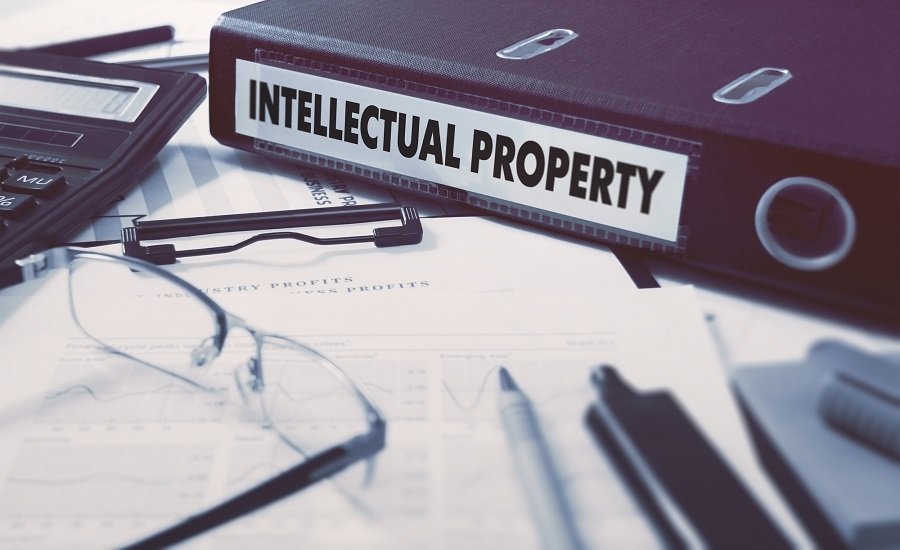Can someone own an idea, melody, or secret? Thankfully for creative people around the world, the answer is yes! Just like physical property, intellectual property is protected by law.
So, what is considered intellectual property? What protections does the law provide? How do these laws help society in general? Check out our legal guide for the answers.

What Is Considered Intellectual Property?
Intellectual property is a general term for all the kinds of intangible things that a person or company has created and does not intend to give away for free.
This could mean something like a song, an invention or type of technology, a story, or any other creative work.
There are four primary types of intellectual property that have legal protections. Or, you could consider them as four ways that federal law protects intellectual property.
Copyright
This type of protection is, as you might guess from the name, gives the owner the exclusive right to copy or reproduce the work. It makes it illegal to express an image, text, or any other visible work in question.
This type of intellectual property does not include things that are not physically reproducible.
For example, if a musician records an original song and copyrights it, another musician can’t benefit financially from it without permission. It is possible to sell the rights to a song or other work, and then the new owner can use it however they’d like.
Other examples of this type include books, TV shows, movies, sculptures, architecture, and dances. To qualify it must be original work and require a “minimum of creativity” to produce.
Patents
The government issues patents as protection to inventors, and you can work with patent lawyers such as Goldstein Patent Law in New Jersey to obtain these. They give the inventor exclusive rights to their designs, ideas, processes, and inventions. It prevents others from making, selling, or utilizing the protected idea for their benefit.
Like all other types of intellectual property, this protection is not forever (see below for more information), but is long enough to give plenty of incentive for inventors to keep innovating.
Quite often technology companies benefit from patents for their code, technology, or applications.
Trademarks
Trademark protection for intellectual property focuses on the branding and identification of the product. Patents prevent someone from making and selling an actual item using the patented design or process, but trademarks are slightly different.
A trademark allows customers to quickly recognize a company or brand. Companies spend a lot of time and resources building up their brand.
They advertise, market their products, develop new products, or even participate in charities or good causes, all to build up their brand in customers’ eyes. A trademark litigator protects that effort and investment, so you should consult with one before getting a trademark done.
For example, people may associate Mercedes with high-quality luxury cars. It would be illegal for another car company to display the Mercedes logo and benefit from the excellent reputation that the company has built for itself.
Trademarks can be words, symbols, logos, or anything that readily identifies the brand. The law protects the use of anything that too closely even resembles the trademarked brand or part of it.
Trade Secrets
This intellectual property works a little differently. You do not officially apply for it like you do a patent, trademark, or copyright. This is because your trade secret is, by definition, not public knowledge.
Trade secrets can be formulas, patterns, ideas, physical devices, or anything else that gives the individual or company a competitive edge. Companies do not want anyone else to even know about the secret.
If a trade secret is leaked to another organization, the company that first used it will need to prove that it belonged to them. If the secret is divulged to the public, the protection ends, though. It relies on the fact that others do not have the information.
How Long Do These Protections Last?
Each type of intellectual property protection has different time limits. Copyright generally lasts until 70 years after the death of the person who copyrighted it. As an example, during the day on public radio, you may hear a lot of classical music.
One reason is that all the songs’ copyrights have expired (since the authors died a long time ago) and so the radio station does not need to pay anything to play the songs.
Patents typically last for 20 years from the time of filing. This allows for plenty of time for the inventor to finish the project and benefit from it. But it isn’t too much time that it prevents others from improving on the idea.
Society as a whole benefits when multiple people or organizations are given the chance to take an idea and improve on it.
]For example, if only one company in the world made light bulbs for hundreds of years because the patent never ran out, we wouldn’t all benefit from competition and all the advancements a healthy, competitive market brings.
Trademarks and trade secrets can potentially be indefinite (though secrets are hard to keep forever!)
Intellectual property law protects the rights of creative people just enough to give them the incentive to work hard, but not too much that no one else can ever take the idea and improve on it.
Protecting Creativity
What is considered intellectual property? All of the entertainment, books, inventions, songs, and technology, is considered private intellectual property for a period of time, just like any other property.
Though it might be frustrating to have to pay for the use of a song or image, it’s a good thing! It gives artists and thinkers the incentive to keep producing work that we all benefit from.
Check back here for more great articles!




